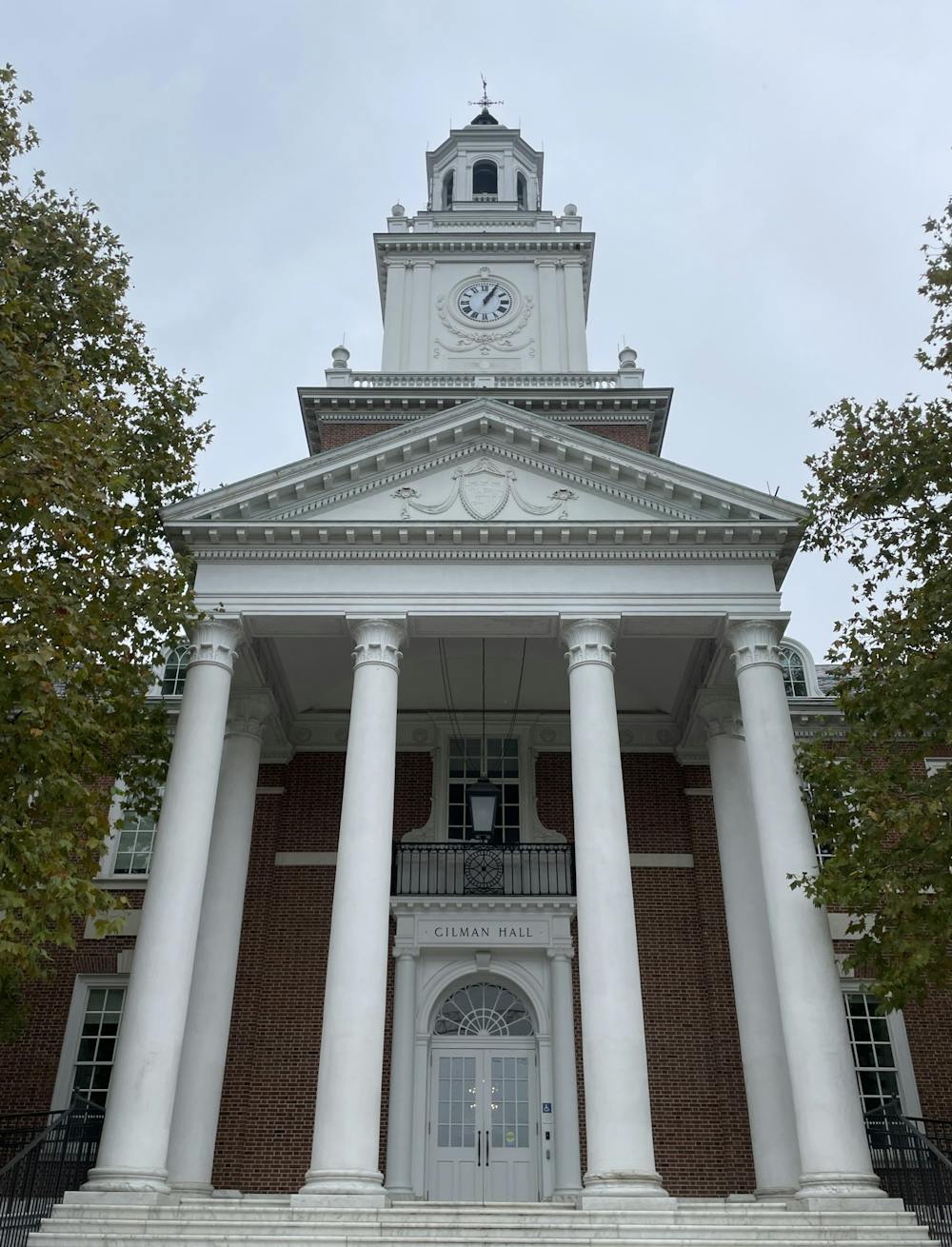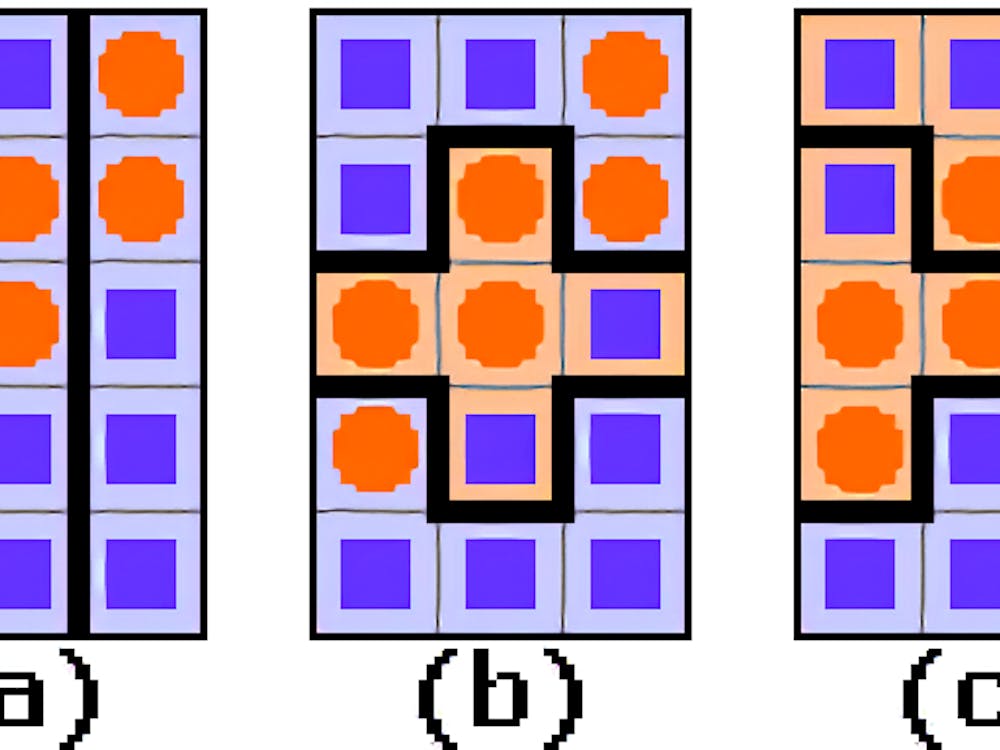Acceptance rate: 4%. Meaning for every 100 applicants, only about 4 were accepted. Congratulations — you made it. Welcome to the Nest.
Every year Johns Hopkins University admits and welcomes the best of the best. With 99% in the top of their class, boasting almost perfect GPAs and standardized test scores, Hopkins students are objectively some of the highest-performing students of the country — the exact students that parents, administrators and leaders claim are the future of the nation and the world.
Which is exactly why I am concerned.
I do not believe that Hopkins students, or our generation in general, do not care about the world. In fact, I witness the exact opposite. My peers constantly discuss their concerns about the economy, war, polarization, climate change, racism and violence. We hold incredible empathy for the world and I have witnessed first-hand the tears of my peers after viewing images of children in war zones, the anger when discussing mistreatment of immigrants and the stress about executive overreach.
During these discussions there is also a consensus about how to solve these problems: We need new policies, new leaders, new systems. In short: we need change. Yet, as much as we can discuss our concerns and complaints about the world, most of us are not as inclined to jump in to be a part of the change — and not because of the work needed to try. Making true changes in the world is obviously a difficult process, but our personal behaviors may shape it more than we think.
A recent New York Times column describes our generation’s continuous battle with rejection and how it has shaped our perception of the world. Our constant competition for college admissions, internships and even social acceptance on online platforms can make us hyperfocused on obtaining stability and avoiding rejection. The constant fear of rejection can also make us more likely to view others as a competitor rather than a friend.
Additionally, in 2023, Hopkins listed about 29% of students, including me, as first-generation and limited income. For these students especially, going to Hopkins is not just an opportunity for them but also for their whole family. Achieving a steady career is their main goal, not only to ensure a successful future, but also to honor their family’s sacrifices for their education.
So, no, I don’t blame Hopkins and college students for being hyper-focused on charting their own path forward. But I implore us to remember that even when chasing our individual successes and life stories, we still have a great impact on the world.
What we must remember is that being the future of the world means that how we view and treat the world around us becomes the world’s future.
I watch the same students who are infuriated about human rights disregard “good mornings” from the janitorial staff, refuse to make eye contact with classmates who pass by and trash talk people they have known for five seconds.
But, they are not mean people: They are stressed and tired, and many fight burnout every single day. In fact, I see the same students, on different days, pick up trash from the grass and compliment strangers. The same small bit of empathy that easily understands the complexities of being a human needs to be applied on a larger level.
I understand that this seems incredibly simplistic. After all, being a “good person” in your personal life seems to have no greater impact on the rest of the world. It is easy to believe that we are powerless to create a greater change in the world. To an extent, it’s true. Still, changes in society are only cemented through changes in culture.
Further, simply treating each other like humans can be a strong political move for both sides of the aisle.
For those whose concerns stem from their worries about the world’s dehumanization and mistreatment of others — what better way to fight this than refusing to practice this dehumanization? Acknowledging that an oppressor is a human is not attempting to justify their actions. Instead, it furthers the idea that no human has the right to treat another human in that way.
For those who lament woke culture for not acknowledging personal struggles and hard work while giving others more than they deserve – does that not mean promoting the similarities between all humans instead of their differences? After all, if no one is allowed to get special treatment, shouldn’t everyone be treated the same way no matter what? Just as your closest friends are no different than you, you should find that same humanness in a stranger.
Before we all start pointing fingers, stating that of course we practice kindness and humanity and it is the “other side” that does not, I would like us all to point one finger to ourselves. If we each are so deeply convinced of our own kindness, care and righteousness, then why do we fear showing it to others? To be empathetic to another is not automatically agreeing with them and it is not forgiving or justifying any of their wrongdoings or opinions. To be empathetic is not to stop fighting for basic rights or to continue calling out unfair and harmful behaviors.
It is simply acknowledging another person’s humanness and remembering that the humanity within us also lies within them.
So, my fellow Hopkins students, and my fellow college students in general, I urge us to remember that being the world’s future means more than our acceptances, achievements and accomplishments. Being the future means how we treat each other will become how CEOs treat their employees, how professors treat their students, how doctors treat their patients, how lawyers treat their clients and how leaders treat their populations. While your role as a Hopkins student might be your greatest privilege on your path to success, your role as a human can be your greatest power for the world on its path to success.
Krisna Kumar is a sophomore from Baltimore, Md. majoring in International Studies and Political Science.





